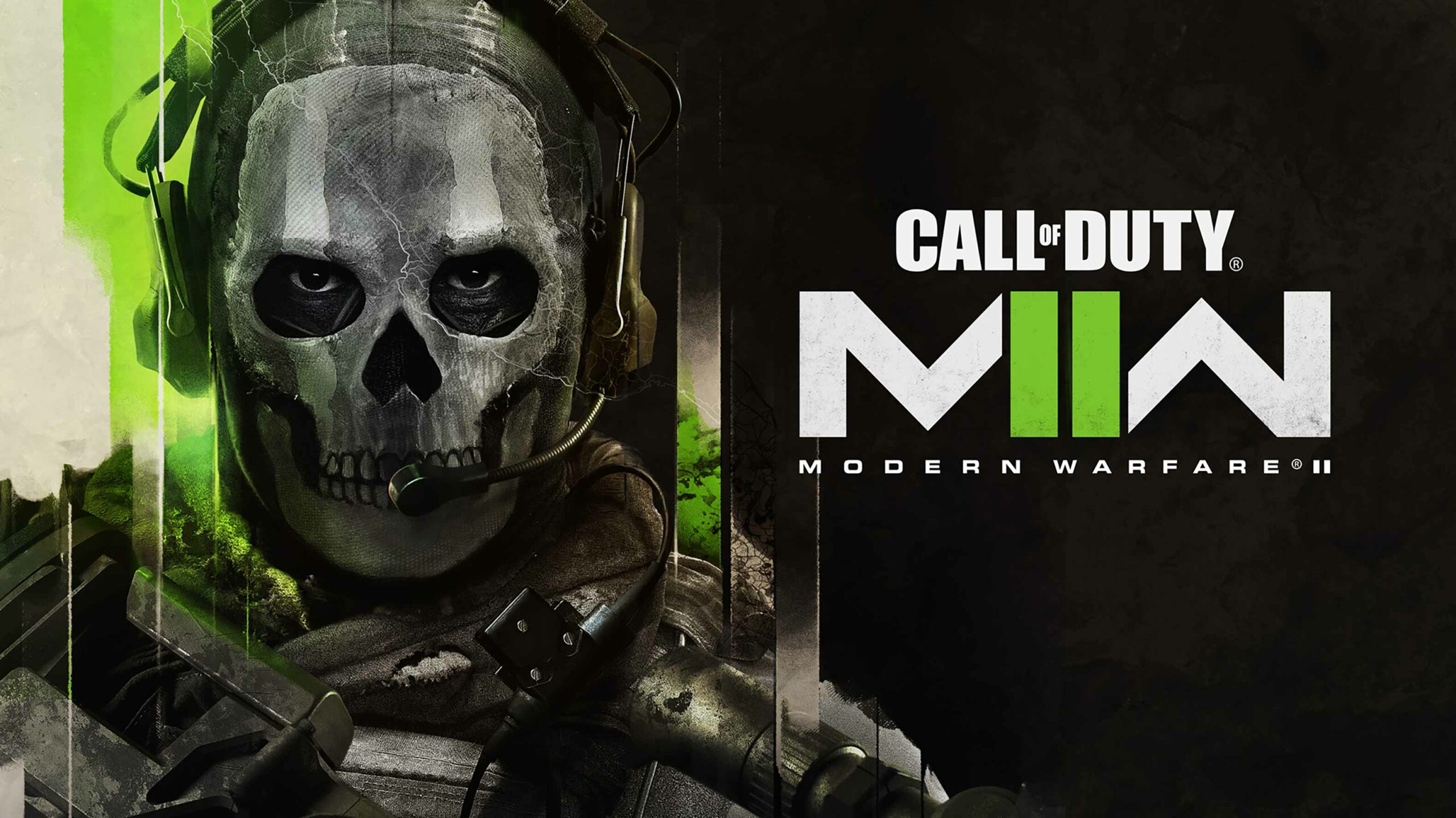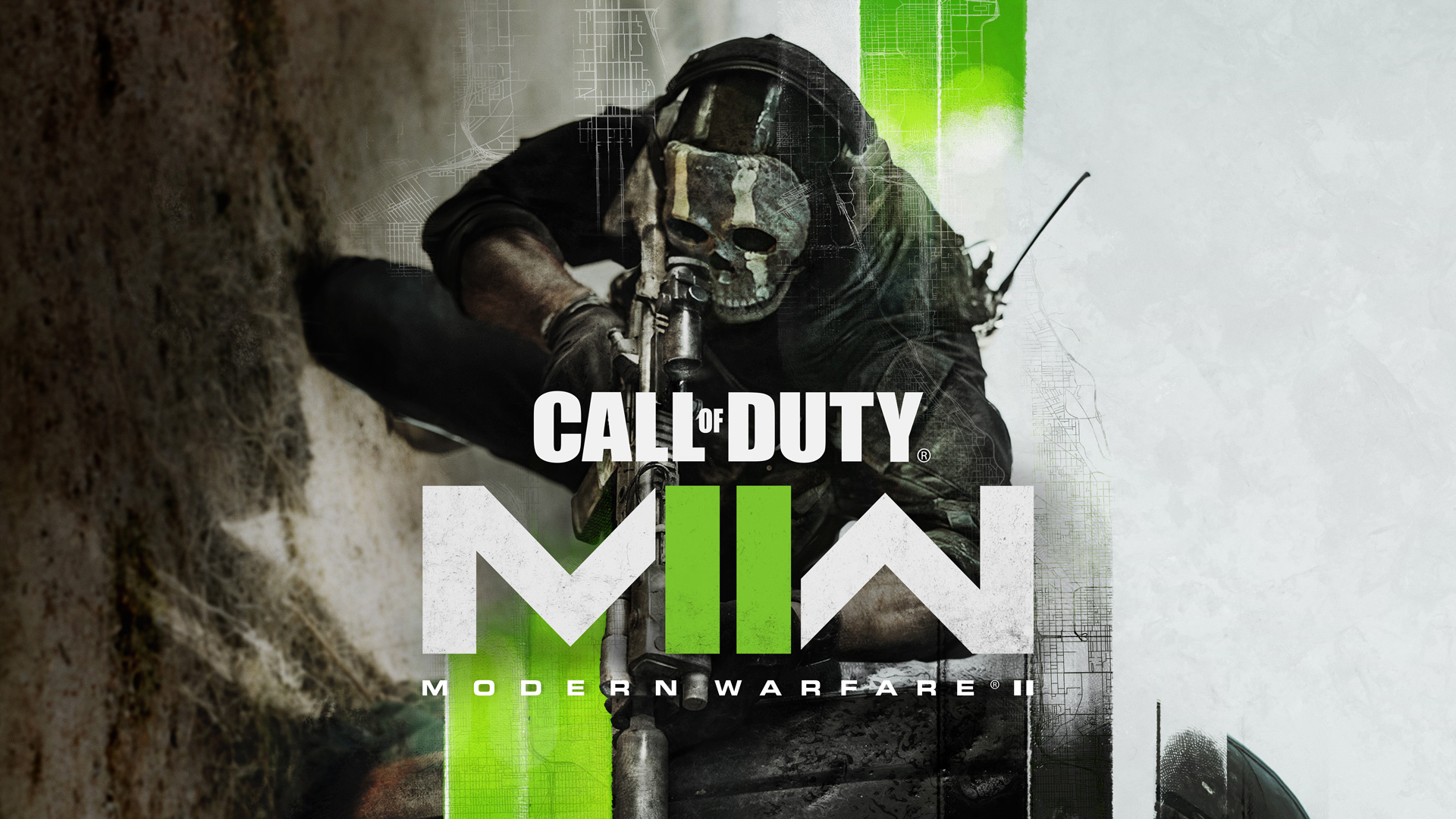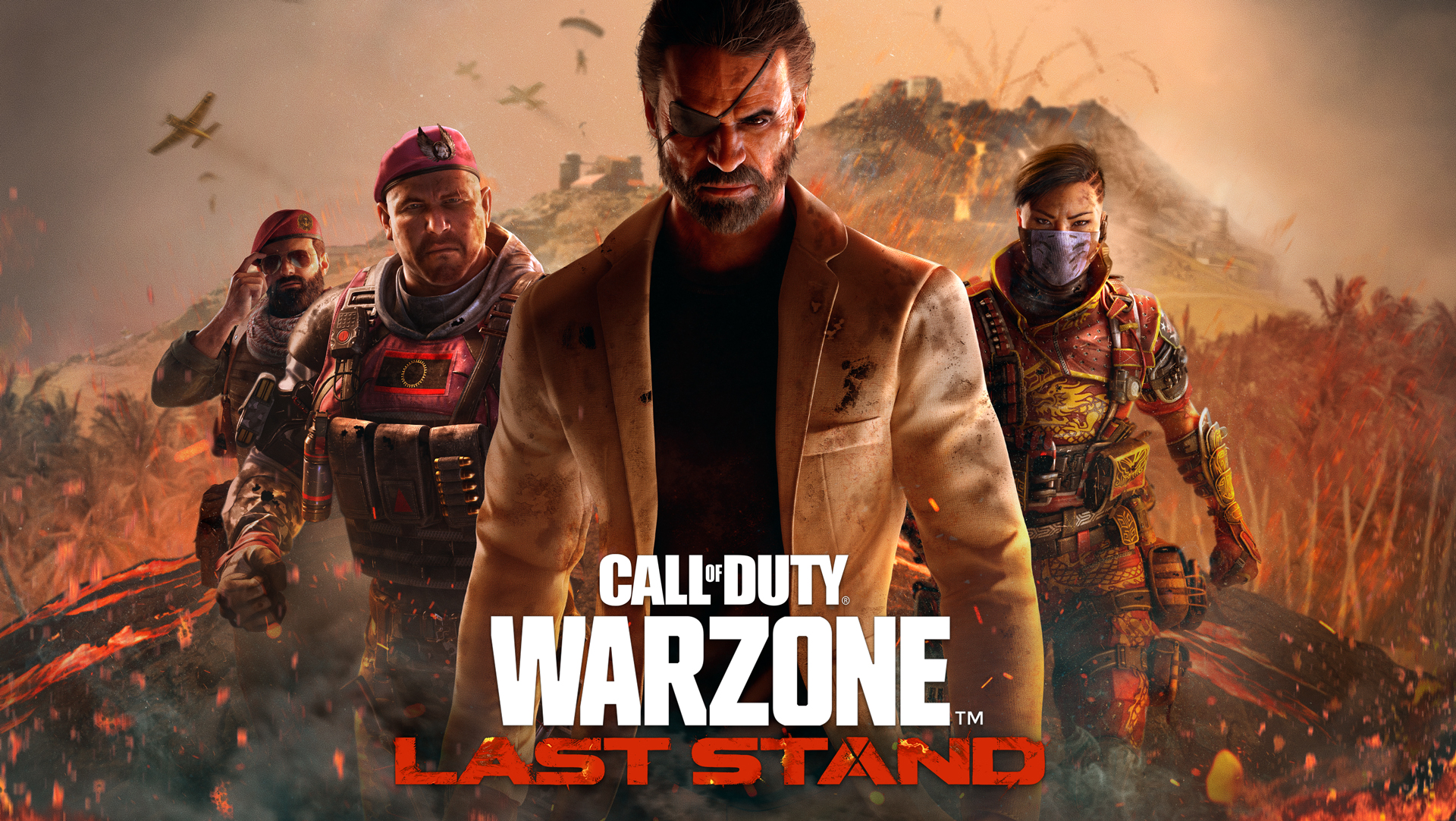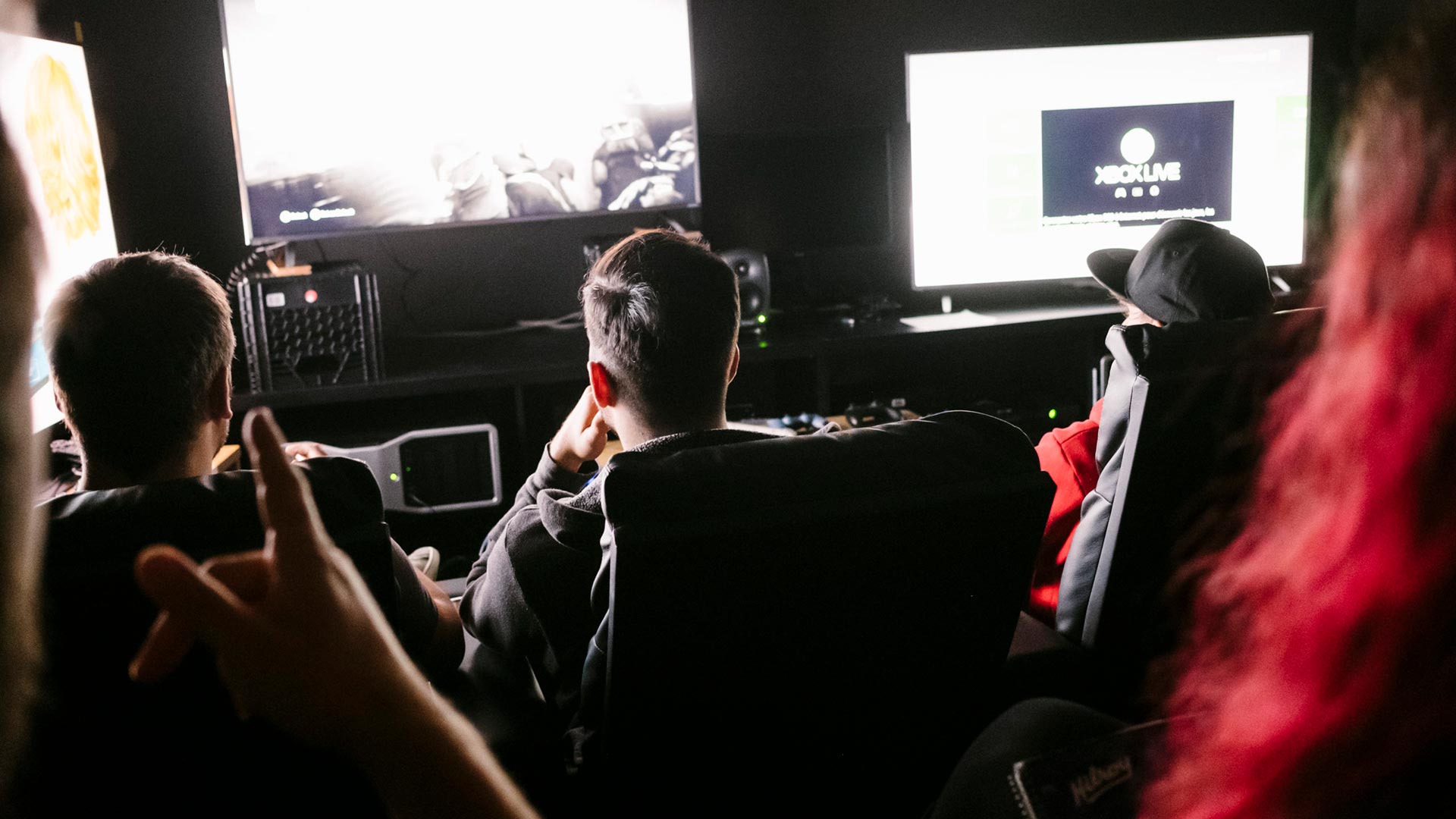
For years, Quebec City-based Beenox has been a key player in the Call of Duty series.
While American studios like Infinity Ward, Treyarch and Sledgehammer alternate between leading development on each of the first-person shooter series’ annual installments, the Canadian team helps out with almost every title. That contribution has also only grown over time; in addition to PC porting work (including for this year’s Modern Warfare II), Beenox developed Call of Duty: Modern Warfare 2 Campaign Remastered and has also been crafting game modes for Warzone.
To get a better idea of how the Canadian studio manages all of these projects, MobileSyrup sat down with Beenox creative director Etienne Pouliot and UI/UX director Marc-Alexandre Milot, after the team’s Fan Expo Canada 2022 panel alongside Sledgehammer’s Toronto team. During our interview, Pouliot and Milot discussed what goes into making a PC port, the close — and sometimes competitive — relationship Beenox has with other Call of Duty developers and what people can do to break into Canada’s booming gaming industry.
Question: The video game industry is a little secretive sometimes, so it’s always nice to be able to put human faces to those who make games. With that in mind, what’s it like to come to events like Fan Expo, especially after three years of COVID, to see some of the fans and speak with them?
Etienne Pouliot, creative director: Yeah, I think that it’s really a privilege to see everyone, because I feel that we don’t do enough with our community. So I think that it’s the right thing to just start getting into those kinds of events and just let people ask us questions, because this is the fun part, knowing what is important for them. So I just hope that people had a great time. And I just hope that we’re going to come next year and again, and again. So that’s pretty cool.
Marc-Alexandre Milot, UI/UX director: I was at Fan Expo [three] years ago to also do an interview. It was really great to meet both the fans and also journalists talking about the game. And it’s really great to be able to do the same thing again. Like, the panel we just had, it was really amazing to meet the fans and to have them ask questions about the game. And you feel like they’re very passionate to make sure that the game will be great, and we try our best.
Q: Another thing about games is that they’re very hard to make. I think a lot of people underestimate that, especially with ports; they think it’s a ‘copy-and-paste’ type of job. Obviously, that’s not true; a lot of work goes into them. So when you’re working on something like Call of Duty: Modern Warfare II, what is some of the work that goes into bringing that to PC?

Milot: There’s a lot of work in porting a game. For me, I’ve been porting games since pretty much I joined Beenox in 2009. We did port the Spider-Man games on 3DS and Wii. We also did the port of Skylanders. So it’s an expertise that you build over the years. The first part is making sure you understand the technology behind it so you can know if you have issues with the online engineering. The team at Beenox has done a really good job at the PC versions, so we’ve had people that have built real expertise into different domains like weapon balancing, also the vendors — making sure that it works well with Nvidia card, the AMD card, Intel. Those are also expertise that we’ve had to develop over the years. Also, to establish the relationships with those other hardware companies, just to make sure what’s going to be the next big thing for the next year so we can be ready as a developer to support it. Those are sort of the examples that we have to do.
On the gameplay/UI side, it’s about making sure that we’re part of the bigger teams. So every time we want to do something with PC in terms of gameplay, we have to talk with Infinity Ward, also talk with Raven — Treyarch is also in the discussion. So we have a huge panel of people from different studios working together to make sure that for every decision that we make, we have a consensus of where we want to go in the future.
Q: That leads to one of my other questions. You’re course collaborating with a bunch of different teams because it’s a big endeavor to make a Call of Duty game. What’s that sort of collaboration look like, especially when you’re here in Canada and they could be in California or another place where it’s a different timezone and different country? What do that process and collaboration look like?
Pouliot: Yeah, I think that we’re happy to have Zoom [laughs]. That’s a good thing about having been through the pandemic. Because before that, we need to move to all those different studios in person to meet. And it was really a great time, but right now, each day, I have a conversation with someone from Treyarch, someone with Infinity Ward. So we’re making sure that we are on the same page on every topic. And we understand what is the goal of ‘that mechanic’ or what is the goal of ‘that map’ or anything. So the communication is just getting better and better. And after all those years with all those teams, I think that we’ve created something really like interesting. It’s not just that we’re great coworkers; friendship gets more and more important. So we see the result of that hard work. So it’s really an interesting part of having those discussions because everyone is different, but everyone has a key to unlock what will be the next greatest experience in Call of Duty. So I feel that I’m really privileged to work with all those talents through the years and I hope that would just keep continuing.
Q: On the subject of collaboration, Beenox recently opened a new studio in Montreal, so you’ve now got the two teams. What’s it like to continue to expand and have those two teams working together?
Pouliot: I think what’s really important is that the culture of Beenox is really flat-oriented leadership. So anyone from any team can come and see me throughout the year and have a discussion about the game and just mention what we should do. So I think that having those new folks with new backgrounds is just going to be a better experience for all of us. Because it’s really important to have those different ideas and topics and just making sure that we don’t lose someone behind because maybe there is an option, or there is a map that it’s not working well. So I see that as again, it’s not like we’re building Montreal studio and we don’t speak with them. It’s like, ‘no, they’re their family members.’ So we’re making sure that they are in every step of production, and the other voice inside what we’re currently doing. So that’s pretty great.
Milot: And we do encourage people to travel from Quebec City to Montreal and Montreal to Quebec City to meet the rest of the team. The fact that all of us were in ‘work from home’ for a few years, that made having people from Montreal just normal business. So they could be sitting in Quebec as well and we’ll still be able to talk over Zoom for meetings. So it’s it’s pretty natural to have them. But yeah, it’s great to be able to have an incentive to have people go to different cities to meet the rest of the team.
Q: Beenox’s involvement with Call of Duty goes to Black Ops 3 for the 360 and PS3. That was seven years and a couple of console generations ago, and technology is constantly evolving. I know you can’t talk much about Modern Warfare II, specifically, but in general, what’s it like for that technology to have rapidly changed? How has that evolved the process of porting a game? Has it made certain things easier or harder?
Pouliot: If we look at all the years back, I think that we need to always step [forward] and make sure that we’re making progress. If we’re not satisfied with the work we’ve done already, it’s always challenging for the team to say, ‘how can we make it look better, run smoother, and as a gameplay experience, what can we offer new to the player so so they get something to engage and to have fun with?’ So it’s not something that’s getting easier, and we see more and more people getting attracted by it. So I just see that as a nice challenge. And I know that we have the team and the resource to achieve those goals. So I’m just looking forward to the future console or PC or something like that.
Q: I know you can’t speak about it much, but it’s been confirmed that Beenox is working on the next Call of Duty mobile game. What’s it like working on a mobile entry in the series compared to the console and PC titles?
Had a great time moderating a panel today at #FanExpoCanada alongside my Activision colleagues 🫶
My first time in Canada and it most definitely won’t be my last! pic.twitter.com/cqx7kbbzic
— Sam Leichtamer 💙 (@Lighthammer_) August 27, 2022
Milot: I would say it’s similar, kind of, because it’s usually [about] making sure the games run well. And mobile is a huge market — you have very different sizes of phones, you have different pieces of hardware inside the phone. So, making sure that we can support the broadest range of hardware is something that we are currently working on with the PC version — making sure that the game runs well on legacy PC has always been something that’s very important for us. So the same expertise that’s been built over the years can be translated to mobile.
Pouliot: Yeah. And just making sure that we have the right people focusing on that version so we know they have the talent and they have the experience to make the greatest experience on mobile. So I’m pretty confident about those folks. So it’s just a matter of giving them all they need to make a successful story with that game and I’m pretty sure it’s going to happen.
Q: Beenox is over 20 years old at this point and you have a long lineage of working on a bunch of different games — even for Activision, specifically, different Spider-Man games, Crash Bandicoot, etc. Are there any plans to return to titles outside of Call of Duty?
Pouliot: I don’t know the future but I’m pretty sure that everyone is excited about anything that could happen. I know that for the folks that have been working for more than 15 years now, I know that we can tackle any challenge. So it can go in any direction. And I’m pretty confident that we’re going to craft something that would be a nice memory for the player.
Q: Even on Call of Duty, though, there are multiple Call of Duty games now. You’ve got Warzone and mobile, as well as the mainline games, and Beenox is working on those and helping out. What’s it like, for Warzone in particular, to work on a live service game, especially one that started right when COVID happened and has evolved so much since? What’s it like to support a live service game like that?

Lately, Beenox has been creating new modes for Warzone.
Pouliot: It’s a huge task. But I think that, again, I feel that we’re learning through that process of live operations service. It’s all about the player and how can we delight them with new content and make sure that the game stays stable and that we improve that experience. Because if you look at the first day of Warzone when it shipped, the state it was, and the state the game is right now — I think we improved all the systems. I feel that it will never be enough. [laughs] But I’m really proud of all the work of the team and we receive so much great feedback from the community. And we know that a lot of people are sticking with us and are just waiting for the next iteration of the game. So I see that as a sign that we’re making progress and working in the right direction.
Q: When you’re introducing a new game mode, what’s the process like of brainstorming and then collaborating with the other Call of Duty teams to implement it?
Pouliot: I can give you an example. Right now, we’ve done a game mode that was called Rebirth of the Dead. We knew that zombies were really huge inside Verdansk. So it was an idea that interns and developers was always, ‘Oh, how can we bring those zombie experiences into Warzone?’ So it was just finding the right time to have the right people working on that. And it’s not just porting the same experiences; it’s like, ‘what have we learned from the community and feedback and how can we make those changes inside that new game mode?’ And after that, when it launched, we see all the success and the positive feedback. So I see that as an improvement from what we’ve done in the past. It’s not just one person that brings all that ideas — it’s really a team effort. And I see a lot of potential for the future in that direction, too.
Milot: And playtest, playtest, playtest.
Pouliot: Yeah, yeah.
Milot: Making sure that we have as many eyes as possible on the project, whether it’s people from HR or QA or engineering. Making sure that anyone can try the game and give feedback to the developers, so everyone has a voice on that. You don’t need to be a pro player to necessarily have good ideas; anyone can have good ideas. So it’s something that we are pushing forward to make sure that everyone participates in playtests, and also the other studios taking part in playtests. It’s fun to see someone from [Infinity Ward] in a match, and you know that you’re going to have a meeting with him after. [laughs]
Pouliot: [laughs] And that’s funny because we have a reputation of really hardcore players at Beenox, so they’re afraid of playing with us because they’re going to [lose]! But this is the kind of energy that you need to have to craft the best experience. And I think that everyone is important in that process, and at the end, you see the results are pretty great.
Q: So you’re saying that developers on Call of Duty in America are actually afraid of Beenox because you guys will beat them?
Pouliot: [laughs] Yeah, we have some pros that I look at playing the game and I don’t understand how fast they can go. I think they are robots or supernatural or something.
Q: We talked about how Beenox is growing, and the Canadian video game industry as a whole is massive. What would be some advice you’d give to someone looking to break in?

Beenox testers.
Pouliot: I think the first thing that is really important is that if you have a company in mind that you want to reach, learn about that company or the product they’ve been crafting and try to find a tool to express what you’ve learned through all those games. So let’s just give an example with Call of Duty: you can take any game engine maybe try to do a level of Call of Duty. You don’t need all the mechanics, but if you just craft a little something, this will give us a hint that you’re passionate about that game. And we’ll see that passion through that level. And after that, this can open a door [for you] to maybe work with us or any company. So I think that you just need to try to do a game and after that, something great might happen.
Milot: I started in modding when I was younger. There was not that much protection on games, so it was very easy to tweak the visuals or to integrate scripts in there. So that’s how I learned how to make video games. There’s now also official tools like Black Ops 3 had the mod that tells you to create your own method to try. I think that’s a great way to see if you are interested or if you like the kind of job that might be possible. And something else that people can do is that we usually have a lot of opportunities on the QA side that people can test again. And something that’s very important at Beenox is that people who are curious are also part of our team. So whenever we take off a feature, we want to make sure that we have every discipline involved in the creation process. So we have people from QA, people from system design, from UI/UX in there, to brainstorm about where they would like to bring the feature forward. So it’s a great way to see if you would be eventually interested to stay there or evolve as a designer or a producer from there.
This interview has been edited for language and clarity.
Call of Duty: Modern Warfare II will release on October 28th. An inaugural Call of Duty ‘Next’ digital showcase will reveal more details on MWII, as well as the future of Warzone and other Call of Duty titles.
It should be noted that Activision Blizzard is facing ongoing legal action related to reported work culture issues. Specifically, the gaming giant was accused in a July 2021 lawsuit of fostering a toxic “frat boy” culture at its U.S. studios in which many employees, particularly women, dealt with harassment, gender discrimination, unequal pay and other forms of mistreatment. Bobby Kotick, the company’s CEO, has specifically come under fire for allegedly working to cover up these reports and has faced calls to resign, yet he still leads the company. Recently, Axios reported that Activision Blizzard has been hit with two setbacks related to its legal battle with California over these workplace misconduct allegations. While none of these allegations directly relate to Beenox, they’re nonetheless important to mention.
Image credit: Activision


